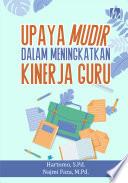
Building B2B Applications with XML
A Resource Guide
What every IT manager and system administrator needs to know about the technology that drives the B2B marketplace The B2B marketplace is rapidly exploding--fast outpacing business-to-consumer e-commerce and expected to reach more than $7 trillion in sales by 2004. This guidebook equips XML authors, programmers, and managers with the technology know-how they need to create and develop simple yet robust B2B systems from scratch. It provides easy-to-understand explanations on how and why XML and other important technologies such as HTTP and MIME are driving the B2B marketplace. Along with XML and Java code examples, readers will find broad coverage of emerging standards and protocols, including Simple Object Access Protocol (SOAP), ebXML from OASIS/UN/CEFACT, XML Common Business Language (xCBL), BizTalk, and Commerce XML (cXML).
- ISBN 13 : 0471049751
- ISBN 10 : 9780471049753
- Judul : Building B2B Applications with XML
- Sub Judul : A Resource Guide
- Pengarang : Michael Fitzgerald,
- Kategori : Computers
- Penerbit : John Wiley & Sons
- Bahasa : en
- Tahun : 2002
- Halaman : 336
- Google Book : https://play.google.com/store/books/details?id=X9MYlT-Fk2gC&source=gbs_api
-
Ketersediaan :
This book cuts through the hype surrounding the recent surge in B2B development and arms you with the freely available technologies you need-such as XML, HTTP, and MIME-to create effective B2B applications.




